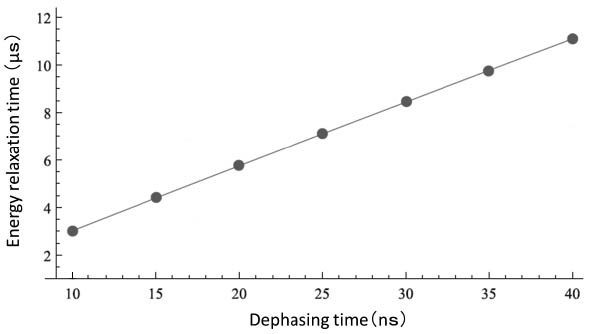Coupled with a Superconducting Qubit
Physical Science Laboratory
For quantum information processing, each physical system
has a different advantage as regards implementation and so hybrid systems
that benefit from the advantage of several systems would provide a promising
approach. One common hybrid approach involves combining a superconducting
qubit as a controllable qubit and another quantum system with a long coherence
time as a memory qubit [1]. The use of a superconducting qubit gives us
an excellent controllability of the quantum states and the memory qubit
is capable of storing information for a long time. It has been believed
that selective coupling can be realized between a superconducting qubit
and a memory qubit by tuning the energy splitting between them.
However, we have shown that this detuning approach has
a fundamental drawback as regards energy leakage from the memory qubit
[2]. Even if the superconducting qubit is effectively separated by reasonable
detuning, energy relaxation time in the memory qubit decreases via residual
weak coupling when the superconducting qubit is affected by severe dephasing
(Fig. 1). This energy transport from the memory qubit to the control qubit
can be interpreted as the appearance of the anti Zeno effect induced by
the fluctuation in the superconducting qubit. We have suggested possible
ways to avoid this energy relaxation process by using decoherence free
subspaces, which is feasible with existing technology [2].
This work was supported by KAKENHI.
[1] X. Zhu et al., Nature 478 (2011) 221.
[2] Y. Matsuzaki et al., Phys. Rev. B 86 (2012) 184501.
 |
||
|